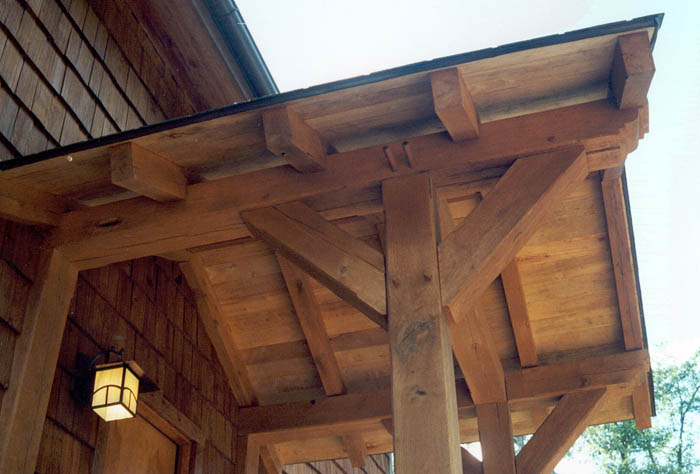Myths About Building with Timber

Timber is great to build with and offers a lot of advantages – but many people aren’t very knowledgeable about this building material. As a result, there are lot of myths about timber that are passed around which are simply not true.
The only way to clear up these myths is with education, so we want to share some important information about timber, how it works and what to expect from it as a building material. Let’s take a look at these timber myths and examine why they are just not true.
Building with Timber Means that Your Home is a Fire Hazard
This is just not true – building with timber doesn’t mean that you are building your home out of kindling. In fact, in the very unlikely event of a fire, the wood would perform much better than any other building materials. It will burn and char at a much slower rate, and it will be much less likely to collapse or melt. As long as a timber home is built correctly and meets the national building codes, it will be fire retardant and measure up to all fire safety requirements.
Another scenario where timber might be a bit risky could be during the wildfire since it spreads at a much higher rate. However, for that, one can employ wildfire safety techniques to deter severe personal damage. You could use fire retardent, fireproof sprinklers, and window covers to protect your house from a large-scale fire disaster.
A Timber Home Doesn’t Last as Long as Brick or Stone
If it is made with high-quality timber materials and is built correctly and well maintained, a timber frame house will be able to last for many lifetimes. One of the advantages that wood has is that it is a living thing, so it has natural strength properties and it will adapt to the elements. Any timber suppliers in North Wales will confirm that their materials will last for many years, even lifetimes if they are maintained correctly.
Timber is Fragile
Many people believe that timber is not as strong as stone or steel, but this is simply not the case. Timber comes in a range of different sizes, shapes and species and it is very versatile. Also, it can be treated in a number of ways that will make it even stronger. There are many different types of quality timber that are comparable in strength to stone and steel. Talk to your supplier of building materials in North Wales and see what types of timber they have available for your building project.
Timber is Classified by Its Hardness
Because timber is divided into hardwood and softwood, you might think that the distinction comes from the relative density or hardness of the wood. However, it actually comes from the species of the tree that it comes from. Hardwoods come from deciduous trees of exotic varieties such as oak, walnut, ash, mahogany and balsa. They can also come from evergreen species, such as brushbox, silky oak, jarrah, and spotted gum. The softwood varieties of timber come from coniferous species, such as spruce, pine, fir, and cedar.
Timber Isn’t Good for Extreme Weather Conditions
There are myths out there about multiple different types of building materials and how they hold up in extreme weather. For example, there might be myths that some wood is bad in rain and so might lead you to have to call services like Water Mitigation Services or waterproofing contractors on multiple occasions to help fix any issues that may have occurred. This is another myth that might stop people from using timber in their homes – but it is simply not true. In fact, timber is a natural insulator. It will keep heat in the house in the winter and it will keep the inside cool during the summer. This is why it has been used in a range of different climates all over the world for most of human history.
These days there is new insulation materials that are designed for energy efficiency to make timber even more thermally effective. A new home can be built to be virtually airtight, which is easier and cheaper to do in a timber frame building. If there are strong winds, the timber frame will be slightly flexible which allows it to move and bend in the wind to avoid breaking. High quality, well-built timber will stand up to any type of extreme weather conditions just as well as any other material.
These are just a few of the myths out there about timber building materials that are simply not true. If you have a home that is built from timber you will enjoy many advantages and you will know that these myths and misconceptions are false. In order to help people understand timber a little bit better and to burst these myths, make sure that you pass along this blog and share it with your friends.


